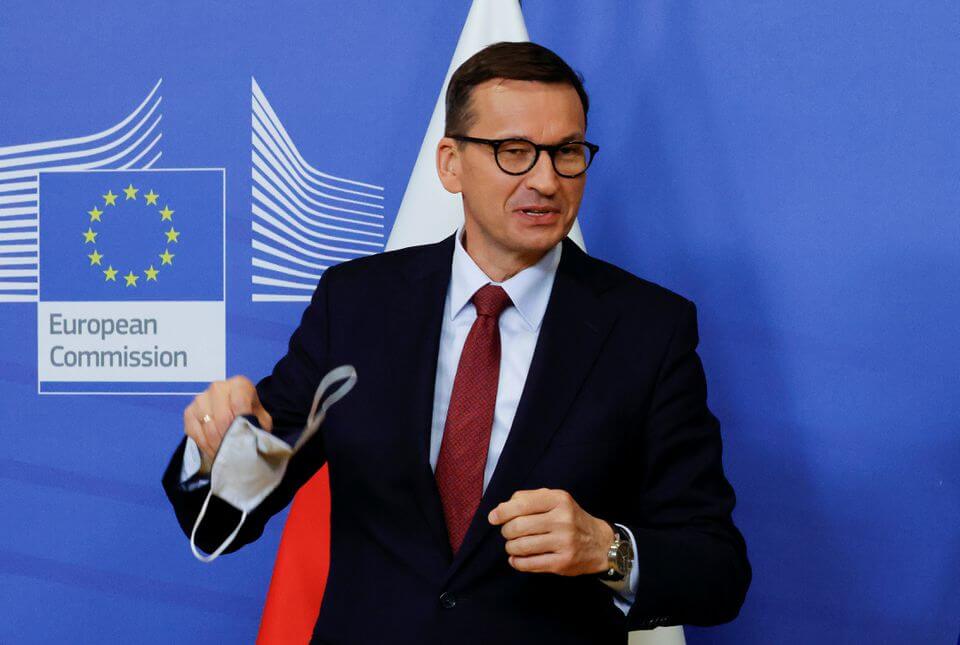Following a meeting with Polish Prime Minister (PM) Mateusz Morawiecki and Sejm Speaker Elzbieta Witek on Wednesday, opposition parties agreed to support the rule of law reforms to unfreeze the European Union’s (EU) $37 billion funds for Poland’s National Reconstruction Plan (KPO).
“The declaration is clear: we will work on the law, its final shape will depend on whether it finds support from the deputies of our clubs,” said Civic Platform (PO) caucus head Borys Budka after the meeting.
It appears #Poland is capitulating to the EU on the rule of law dispute. We'll have to see how much this will alleviate tensions between the ruling right-wing government and Brussels but if nothing else this signals a major change in the party's prioritieshttps://t.co/J70IzEojSv
— Michał Kranz (@Michal_Kranz) December 15, 2022
Similarly, New Left leader Krzysztof Gawkowski emphasised, “European funds, KPO funds are needed, they should be in Poland immediately. However, there is no agreement that we should adopt the law in an emergency mode. Without consulting expert opinions,” further stressing that “no one will succumb to blackmail.”
“There were words from the PM that the law must be passed without amendments. We do not agree to this,” he added.
Likewise, Polish Peoples’ Party (PSL) leader Wladyslaw Kosiniak-Kamysz blamed part of the ruling coalition for the current situation, without naming the junior ruling coalition party, United Poland (Solidarna Polska). Nevertheless, he vowed to “do everything to get EU funds.”
In fact, the opposition parties argued that PM Morawiecki had only called the meeting because he was unsure of gaining support from alliance partner United Poland.
Deputy Justice Minister and United Poland party member Sebastian Kaleta revealed that his party is against the draft amendment, as he believed that the proposal could lead to “anarchy in the Polish judiciary.”
In contrast, another United Poland lawmaker, Marcin Warchol, opined that the party needed to study the draft before coming to a decision, noting that the issue was “difficult.”
Echoing Warchol, Morawiecki said, “I don’t know whether United Poland will vote in favor,” adding that the party “leadership has asked for a few days for consideration.”
United Poland, a hardline junior partner in the ruling coalition, will not support the government's judicial bill that is intended to meet EU demands for unlocking frozen funds.
— Notes from Poland 🇵🇱 (@notesfrompoland) December 14, 2022
They say it would undermine Polish sovereignty and create "judicial anarchy" https://t.co/pp0nFyvVzT
As per the draft, the disciplinary and immunity cases of judges will be decided by the Supreme Administrative Court, instead of the recently-established Supreme Court Professional Responsibility Chamber. It aims to “eliminate potential doubts related to the implementation by the Republic of Poland of its obligations” and strengthen “the independence and impartiality of the judiciary.” It also offers changes with respect to a judge’s independence and impartiality, the circumstances of their appointment, and a review of their post-appointment conduct.
Nevertheless, Morawiecki intends to seek a resolution with Justice Minister and United Poland leader Zbigniew Ziobro in order to get the EU funds unblocked. Government spokesman Piotr Müller has acknowledged the differences in the United Right coalition but said that “if United Poland does not want to support us on KPO, we will be forced to vote on certain statutory amendments with those in parliament who believe that additional funds are important for Poland.”
“If this project is adopted, it will be tantamount — this is the declaration from the [European Commission] — to the release of funds for Poland,” he emphasised.
Polish EU Affairs Minister Szymon Szynkowski vel Sek confirmed that the European Commission had approved the proposed amendments. EU sources told PAP that the EC “considered it as meeting the requirements included in the so-called milestones linked” to Poland’s KPO.
In this respect, Szynkowski vel Sęk on Tuesday noted that the EC considered the negotiated guidelines as “satisfactory.” “If the Sejm approves them, they will fulfil the milestone regarding the judiciary system, which is the key one for obtaining the funds from the National Recovery Programme,” he stressed, adding that Warsaw had been able to clear doubts without introducing changes to the legislature.
“Since the very beginning we have been declaring openness to changes on the condition that they do not violate the pillars of the state constitutional system,” he underscored.
Along the same lines, Morawiecki told reporters on Wednesday: “There is no time today to continue the tug-of-war and that is why I have appealed to the opposition parties to bring this process to an end as soon as possible.”
After a long story of setting up a dedicated Supreme Court chamber meant to handle disciplinary matters (and having political control over such chamber), the government in Poland is proposing to throw it all away and take this stuff out of Supreme Court entirely. Astonishing. 4/
— Jakub Jaraczewski (@j_jaraczewski@mastodon.online) (@J_Jaraczewski) December 14, 2022
The parliament is expected to vote on the amendments next week. Thereafter, it will require the approval of the Senate and finally President Andrzej Duda.
However, the EC has raised concerns that the new chamber might become just another “politically controlled” institution, like the disciplinary chamber that was abolished in May.
Meanwhile, Kaleta told state broadcaster TVP that Poland would veto the EU’s latest proposal of legalising the rights of same-sex parents and their children across the bloc. “As long as [this] government is at the helm in Poland, this document will never come into force,” he affirmed, warning that it would make “the rights of western Europe… binding in Poland” and would “open the way to further regulations of family law” like recognising same-sex marriages or the notion that there are “dozens of ‘genders’.”

